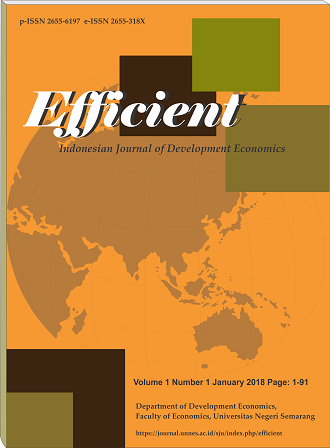The Impact of Human Capital and Corruption on ICOR in ASEAN Countries
Abstract
This study aims to analyze the effect of the Capital-Labor Ratio, Mean Years of Schooling, Corruption Perception Index, FDI to GFCF Ratio, and Trade Openness on the Incremental Capital-Output Ratio (ICOR) as a measure of investment efficiency in 8 ASEAN countries. The results of this study indicate that Capital per Worker, Corruption Perception Index, FDI to GFCF Ratio, and Trade Openness have a significant effect on ICOR in 8 ASEAN Countries. While the Mean Years of Schooling have no significant effect on ICOR in 8 ASEAN Countries. Suggestions in this study to create investment efficiency in 8 ASEAN countries are to maintain and select the growth of Capital per worker by recognizing that increasing investment in the capital-intensive sector is a critical sector with a large spillover effect on the economy, increasing the quantity and quality of education, eradicating corruption, increasing FDI flows by increasing the country's competitiveness through the creation of a conducive business climate and providing various monetary and fiscal incentive, lowering export trade barriers, and attempting to limit and substitute imported consumptive and high-dependence products by developing and producing them domestically.






